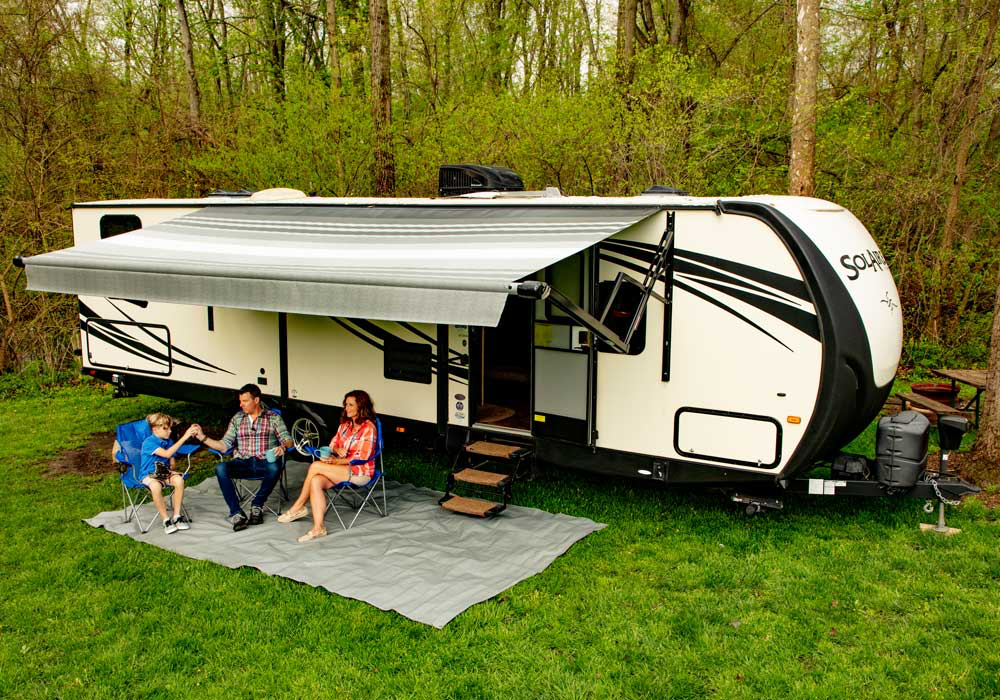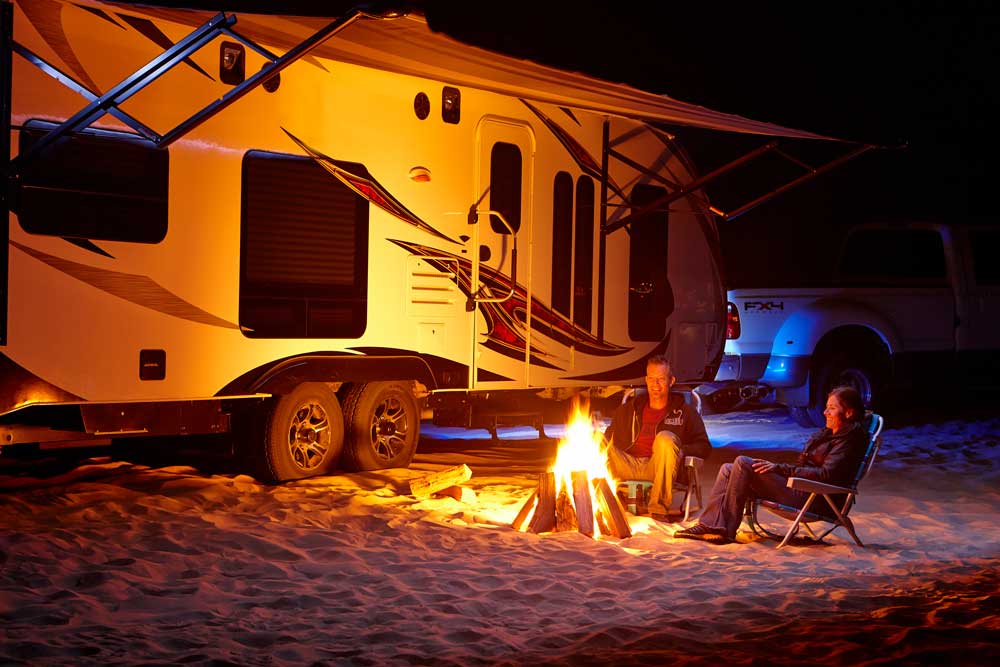Conscious efforts to go green and reduce our carbon footprint are more ubiquitous than ever, and many RVers are looking for options that promote eco-friendliness. This has led to the manufacturing of more earth-friendly vehicles that focus on energy and resource efficiency, and some RVers have even started to replace their regular fuel with alternative biofuel.
These are all great improvements happening in the industry, but many people aren’t able to invest in an entire new rig or undertake the complicated process of switching to biofuel. The good news is that there are still ways you can be conscious of the environment no matter what setup you’re currently working with.
Here are a few ideas to help your travels be a bit more green:
Use Your RV Awning Instead of Your AC When Possible
Spring and summer are the peak seasons for RVing, and because the temperatures are warmer during this time, many travelers find themselves needing relief from the heat. Naturally, you may find yourself wanting to blast the AC on as low of a setting as possible, but the air conditioning unit tends to be one of the least energy-efficient appliances in an RV.
Because of this, you can cool off by sitting outside, enjoying the scenic view, and basking in the shade of your
RV awning, and if you’re really looking to stay cool, you can keep out about 85% of the light by attaching a
Sunblocker to your awning.
Additionally, parking your RV in the shade will help cool off your home-on-wheels, and adding extra insulation inside of your rig can help reduce the heat transfer.
Consider Investing In Solar Power
The amount of RVers who use solar power is consistently increasing. Turning energy from the sun into energy for your RV is a clean, earth-friendly way to go about powering up your appliances and/or charging your batteries. Solar power also allows you to be more energy-independent, as you can get by for longer periods of time without being plugged in or using your generator. That being said, it can be costly upfront to access the amount of solar panels that you would need in order to power up your entire rig, but you’ll end up saving money on electricity in the long run, as solar energy is unlimited as long as it’s not a cloudy day
Recycle On the Road
Recycling on the road can be tricky, as most RVers naturally try to reduce the amount of clutter in their rigs as much as possible. It makes sense that you don’t want bottles, cans, boxes, etc. overflowing and taking up more of your space, and this is why many travelers give into convenience and end up tossing materials that could be recycled.
To make matters more difficult, most campgrounds don’t offer recycling, so you’ll most likely have to haul your materials with you until you find the right place to dispose of them. It helps to create a storage space that is solely for recyclable items, and if possible, make it somewhere that can be out of sight, such as in a cupboard or closet. To avoid any odor buildup, rinse out the bottles and cans before placing them in their designated bin.
As far as where to drop off your items, here are a few options to consider:
- Many grocery stores have large recycling bins open to the public.
- You should be able to locate a nearby recycling center that may even pay you for your load.
- Use apps, such as these ones, to help you find the easiest and most convenient drop off locations for your recyclable goods.
Use Reusable Dishes and Utensils
It’s certainly tempting to turn to plastic forks and paper plates when you’re on the go, but doing so is highly inefficient when it comes to minimizing your waste production. When you really think about it, you’re only saving a few minutes of your time when you avoid dish-washing by turning to disposable dishes, and if you’re truly trying to stay as green as possible while living the RV life, it’s more than worth it to trade convenience for practicality.
Be Responsible With your Fire
Gathering around the fire in the quiet darkness of nighttime is a longtime camping tradition, but the smoke it produces does no favors for the environment. When the wood is burning and putting off smoke, toxic pollutants are released into the air. This isn’t to say that you should never enjoy a campfire during your RV adventures again, but it’s important to try and minimize the damage. Here are a few ways to help you do just that:
- Never burn trash in your campfire, as doing so releases even more toxins into the air
- Try to keep fires small.
- If you’re mainly using the campfire to provide outdoor lighting at night, consider using an LED add-on for your RV awning. LED lights are about 90% more energy efficient than traditional fluorescent and incandescent bulbs.
Takeaway Points
If you’re like most RVers, you love the feeling of being immersed in the gorgeous elements that our beautiful Earth has to offer, and doing your part to take care of this planet helps preserve it for future journeys. Hopefully the above tips give you a good idea of how you can start reducing your carbon footprint. Happy trails!

